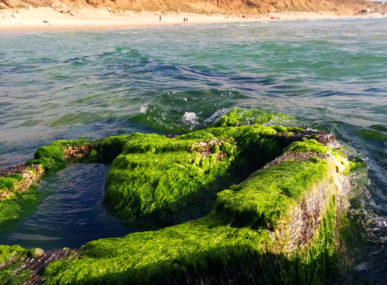“Our product aims to bring one viable solution to the waste crisis in Lebanon and later on to the problem of waste worldwide, knowing that concrete is energy-intensive and is extracted from a mountain of unregulated quarries,” Rasset says. The project is also planning on connecting with municipalities to reuse some of their waste and produce pavement and urban furniture.
What’s more unique about this project is that they recycle all solid waste without sorting it. “We want to become a healthier solution for waste management and one of the solutions for municipalities whose only current solution is to landfill their waste and/or openly burn it, which causes health damages especially for children and older people,” Rasset explains.
Re-Build also plans on reducing the use of raw materials in the building sector by offering cheaper materials made up with a portion of waste. “We aim to duplicate the project across the country in several areas to be closer to our clients and to other municipalities, thus we will need to hire manpower and create local jobs,” Rasset adds.
Rasset who is a civil engineer has earlier been awarded $1.000 by the Diane Foundation, a SwitchMed partner at the Make Sense Bootcamp in August 2017. She also partook in the SwitchMed incubation program to make a marketing and advertising plan, so he can use social media and other regular channels to spread awareness around eco-responsibility and waste impact. “We will also participate in dedicated conferences, fairs and salons to expand our visibility and the training will also allow us to improve our communication skills,” she says.
Photos: John Cameron and Malaya Sadler on Unsplash.


